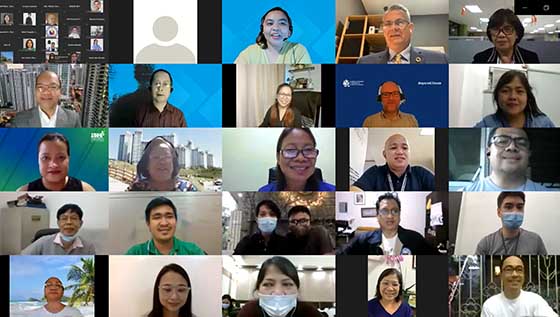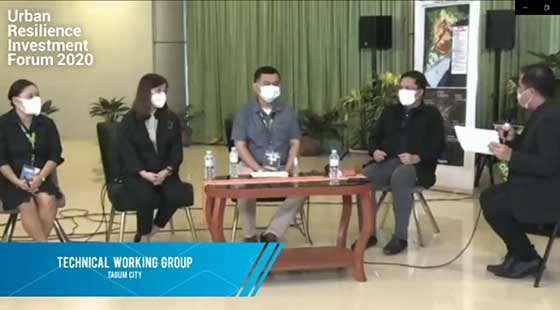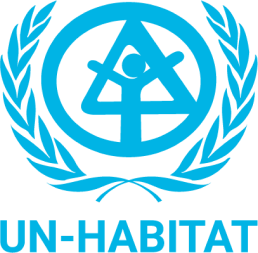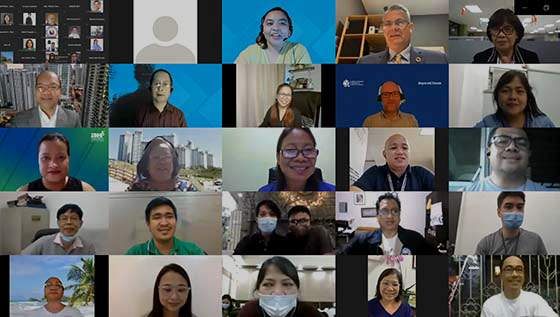23 December 2020, Manila – The Urban Resilience Investment Forum 2020, a three-part virtual event jointly organized by the Department of Human Settlements and Urban Development (DHSUD), Climate Change Commission (CCC), and United Nations Human Settlements Programme (UN-Habitat), concluded on 25 November 2020 with five cities successfully presenting their innovative climate-resilience projects to potential investors and partners. It gathered a total of almost 1,400 participants in its four-day run, representing the local government, national government agencies, private sector, development organizations, and the academe. Among the participants are investors from local commercial and government banks, private companies and donor agencies.

According to the World Cities Report 2020, delivering on the urban dimension of the Sustainable Development Goals will cost US$38 trillion. The financial resources are available globally, but they are not channeled to areas where they are most needed.
The Investment Forum served as a strategic platform for relevant stakeholders to participate and discuss the current landscape of support for city climate action plans, pressing issues in accessing financing solutions, and making finance flow from global and national sources down to the cities.
“As we battle this pandemic, we as leaders, policy makers, planners, developers, and investors cannot compromise the future of our cities. We cannot separate the issues of urban development, climate change, and public health,” said Hon. Eduardo D. Del Rosario, Secretary of the DHSUD in his keynote message during Part 1 held on 30 October 2020.
The first part, held as prelude to World Cities Day, set the scene for thinking and the actions around financing urban resilience considering the global and national climate goals.
Part 2, held on 17 and 19 November 2020, provided the venue for partner cities of the Building Climate Resilience through Urban Plans and Designs (BCRUPD) to pitch their urban plans and projects on climate resilience and green recovery with investors to explore funding and financial potentials that will support their plans and projects.
The cities of Angeles, Cagayan de Oro, Legazpi, Ormoc, and Tagum, led by their mayors, respectively presented the Angeles Aquipark which re-designs the landlocked city to address the negative impacts of climate change; Project Lunhaw which creates urban-friendly green spaces by transforming vacant spaces into climate adaptive recreational areas; Legazpi Urban Streetscape which aims to help the city adapt to the impacts of flooding, sea-level rise, and increasing urban temperatures; Ormoc Urban Waterscape which adopts nature-based and engineering design solutions to help address flooding, heat stress, and storm surge; and Tagumpay Citywalk which aims to protect its most vulnerable residents by introducing holistic and integrated urban design solutions.

Held on 25 November 2020 and coinciding with the 2020 National Climate Change Consciousness Week, Part 3 focused on finance and resilience lessons for climate-resilient green recovery and on advocating investment support for local climate actions.
Lessons from the previous two parts of the forum were summarized by Maria Adelaida Antoinette Mias-Cea, Asia Pacific Regional Coordinator of the UN-Habitat Cities and Climate Change Initiative.
Resource speakers from the DHSUD, Bangko Sentral ng Pilipinas, the Global Covenant of Mayors for Climate and Energy, LBP, and ADEC Innovations shared their insights on maximizing land-based financing mechanisms, championing sustainability in the financial system, financing programs for climate change, Gap Fund support, and impact investments, to name a few.
In closing, Christopher Rollo, Country Programme Manager of UN-Habitat Philippines, provided a picture of how the projects will move forward post-forum.
“The real test of these projects is to know whether they are just pipe dreams in the urban wish list or are actually bankable projects that can be financed and implemented. Thus, we encourage further conversations between cities and possible investors, partners and supporters to realize these projects.
At the national level, policy work continues with the finalization of the enhanced national guidelines on urban planning and design which will be translated into training modules for all local government units, with the city examples as concrete demonstration of useful tools and approaches.”
For more information on BCRUPD and the Urban Resilience Investment Forum 2020, visit https://designingresilience.ph/ or follow http://facebook.com/bcr.upd or https://twitter.com/bcr_upd for updates.


